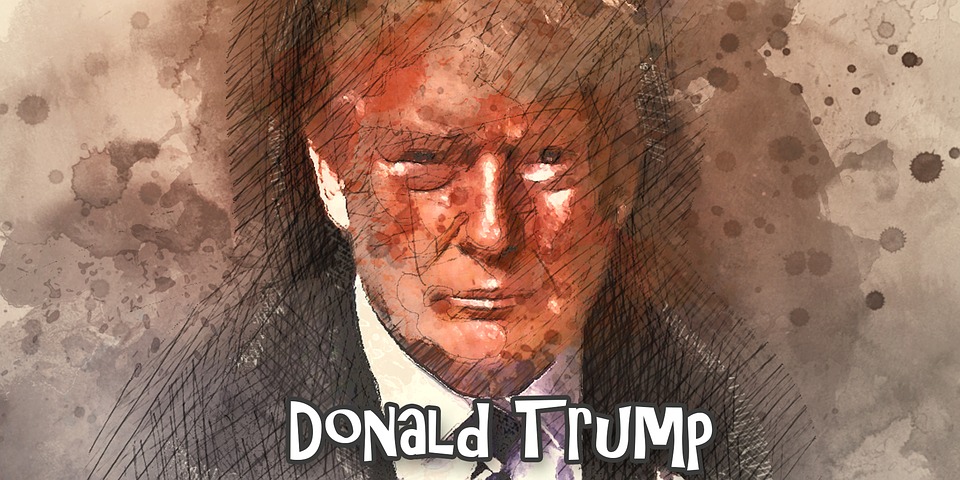When U.S. President Donald Trump pulled the United States out of the Iran nuclear deal in May of this year, he vowed that America would re-impose all the sanctions on Tehran that had been lifted by the pact championed by President Barack Obama.
That promise will be kept on Nov. 5, as a deadline is reached for nations needing to cease importing Iranian goods or face serious financial penalties. It will impose sanctions on more than 700 businesses, government agencies and individuals in Iran involved in oil, banking, shipping, shipbuilding and insurance. That will tighten the noose that has been gradually choking the Iranian economy since Trump took office and began the process of dismantling his predecessor’s pact.
One is that the administration has granted an exemption to eight unidentified countries, allowing them to continue to do business with Iran. One is believed to be India, a major trading partner of Tehran’s.
Also notably absent from the announcement was any mention of America’s determination to ensure that any nation or entity that conducts business with Iran will be cut off from the U.S.-based Society for Worldwide Interbank Financial Telecommunication or SWIFT, which banks worldwide use for international transactions. If it had been included in the sanctions, that would essentially compel anyone interested in commerce with Iran to choose between money to be made with Iran or being able to do business in the United States, as well as any other entity that has interactions with U.S. banks. That would have imposed a blanket of complete isolation on Iran.
What happened?
Has Trump gone soft? Was the foreign-policy establishment that the president so despises—and whose advice he spurned when it came to moving the U.S. embassy to Jerusalem or ending the Iran deal—persuade him or Pompeo to back down? Will these loopholes give Iran and its European enablers the leeway to wait out Trump in the hope—as former Secretary of State John Kerry has advised them—that the Democrats will win the 2020 presidential election and save the pact before the president can finish scrapping it?
The answer to all these questions is maybe.
In Trump’s defense, the exemptions that he granted are far fewer than the ones Obama gave out. Obama exempted 20 nations rather than just eight, and Trump’s exemptions are limited to a six-month period.
According to Pompeo, two of these nations have promised to end imports of Iranian oil within weeks. The administration clearly hopes to persuade the others to do the same. But if they don’t, that will set up another crucial moment in six months when the same people who were able to convince Trump and Pompeo to back off this time will have another opportunity to further delay Iran’s total isolation by asking for an extension on their exemptions.
The decision about SWIFT is even more problematic.
The arguments against cutting off Iran’s trading partners from SWIFT were based on the idea that it might lead the Europeans to try to create a rival banking system. That would potentially damage the dollar and cost American institutions a lot of money.
But that was an empty threat. The notion that Europe, for all of its wealth, could afford to try to compete with the U.S. system is ludicrous. It would cost them far more than it would the United States. The Europeans know that Trump values the nation’s economic gains achieved on his watch. Those arguments apparently worked and convinced the president to back away from his promise to move quickly to bring Iran to its knees.
Yet there’s little doubt that what Trump is doing is still going to have a devastating impact on Tehran. Since Trump’s Iran-deal announcement, the rial, Iran’s currency has lost two-thirds of its value. Its oil exports have also declined by 40 percent.
Moreover, the fear of being shut out of the United States and its banks was enough to scare foreign investors away. The expected post-Iran deal gold rush never really materialized. Protests about both the sinking Iranian economy and the repressive nature of the regime have weakened the hold of the theocrats and their terrorist allies.
That weakness gives the lie to the predictions that more sanctions and pressure will induce the ayatollahs to attempt to break out from any nuclear restrictions and quickly build a bomb. Trump understood that the Iranian regime is a paper tiger, which bluffed its way into massive concessions from Obama that not only didn’t end its nuclear program, but also included sunset provisions that will allow Iran to build a weapon once the deal expires.
That’s why Trump’s move to scrap the deal was something that had to be done eventually if the West was to avoid standing by as Iran built a weapon.
Some Republicans, led by Sen. Ted Cruz of Texas, hope to rectify this situation by introducing legislation that will mandate the imposition of SWIFT sanctions on Iran and its partners. But the chances of passing such a bill overriding Trump’s decision aren’t great.
By giving Iran and its economic partners some wiggle room Trump may have encouraged them to think that they can survive until he is replaced in 2021. That may or may not happen, but by leaving Iran hope that it can avoid having to renegotiate the weak deal that Obama gave them, the president has made his goal that much harder to achieve. Instead of calling Iran’s bluff, he’s enabled them to think they can still beat him.


























